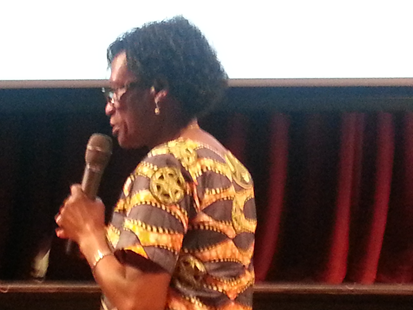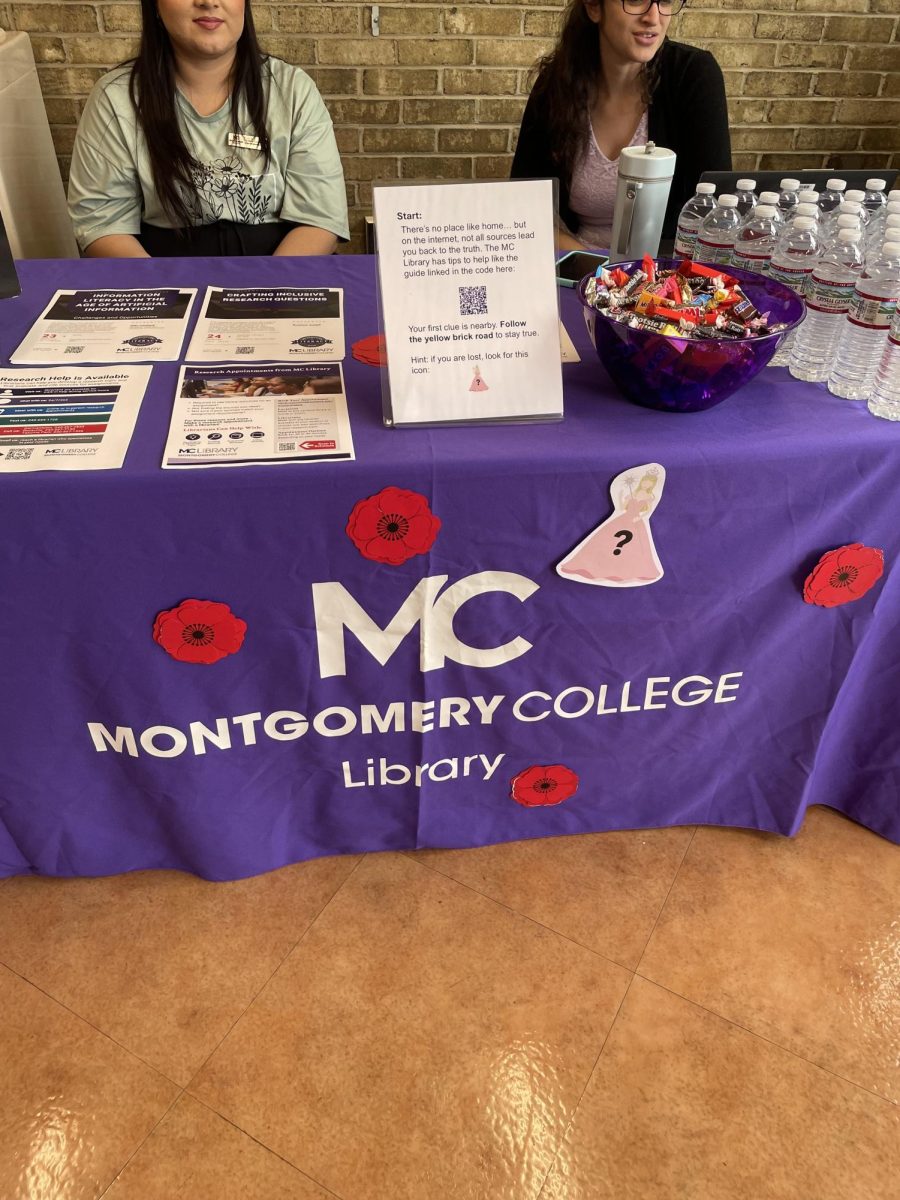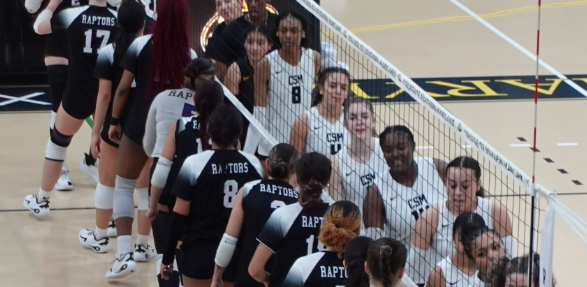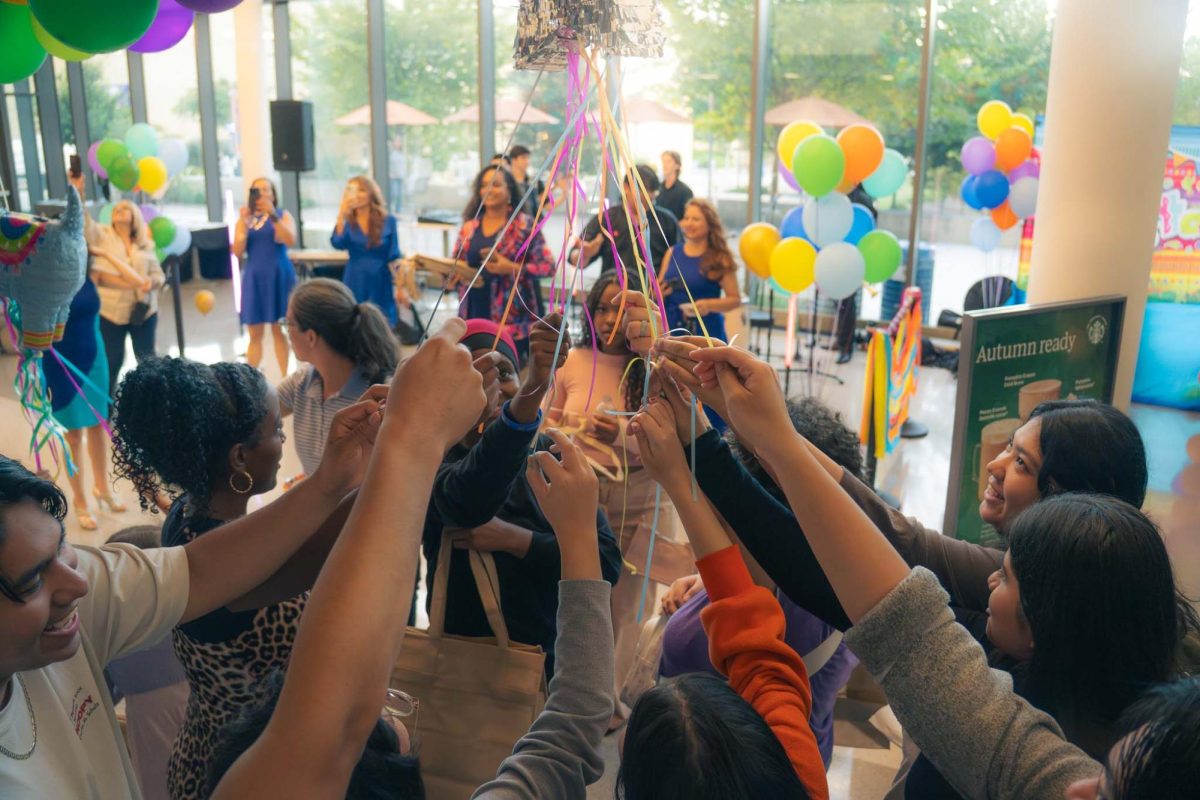Officially, International Peace Day is observed on Sept 21. Montgomery College, Rockville Campus celebrated International Peace Day on Sept 24 by welcoming a special guest onto campus. Peace advocate, Dr. Elavie Ndura, presented her motivating keynote address on “Uniting Mind and Heart through Pedagogy: The Essence of Education for Peace.” Dr. Ndura, currently a professor at George Mason University, is very passionate about her work. After going through many hardships in her country, Burundi, Ndura made it her life’s work to promote peace internationally.
Dr. Ndura began her address by educating the audience on what her childhood was like in Burundi. She explained, “the Burundian dream would [be to] make it through school [to have] a better life.” Many suffer from poverty in Burundi. With an education, one was able to move from brittle hut-like shelters into bigger, sturdy houses. In 1972, lives in Burundi were changed forever because of the genocide that took place, killing between 80,000 and 210,000 people.
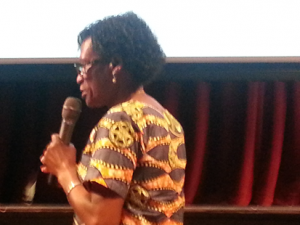
How Does Life in Burundi Have to do With International Peace?
Ndura explains that there are three main elements to peace pedagogy: knowledge, skills, and attitudes. The first step is knowledge; raising awareness of the struggles in the world such as poverty and hate crimes is the first step towards understanding that the elements of peace are all intertwined. The second step consists of having effective conversations about this understanding and coming up with informed solutions to better the situation. Lastly, having a positive attitude, teaching acceptance, and being socially responsible through steps one and two will help to improve the problems being faced throughout the world.
“Social responsibility is about shaping human beings with intellectual curiosity, a caring heart, and a belief in the common good” says Ndura.
Once Inner Peace is Achieved, International Peace May Blossom
One of the final points Dr. Ndura emphasized was the need to foster compassion. She then noted the importance of finding inner peace and quoted the Dalai Lama saying, “as human beings we all want to be happy and free from misery. We have learned that the key to happiness is inner peace. The greatest obstacles to inner peace are disturbing emotions such as anger, attachment, fear and suspicion, while love and compassion and a sense of universal responsibility are the sources of peace and happiness.”
The Personal is Political
One audience member asked how Ndura overcame the anger that she was left with after the events in Burundi which included her mother being brutally beaten and later her husband being assassinated. She was left with two choices, one was “to live in agony and anger, or do something to help and protect. Education is it,” Ndura explained.
“Educating for peace is empowering students to alleviate human suffering.
Educating for peace is inspiring youth to envision hopeful futures.
Educating for peace is advancing [the] youth’s positive engagement in social transformation.
Educating for peace is affirming voices of the common good among current and future generations.
Educating for peace is dreaming and believing with our students.”


